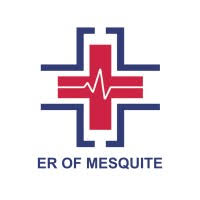The emergence of healthcare social networks has revolutionized how healthcare professionals connect, collaborate, and share knowledge. These networks create dynamic spaces where practitioners, researchers, and patients can interact seamlessly, improving medical outcomes through the exchange of insights and resources. With platforms like Linkomed offering innovative solutions, these social networks are becoming indispensable tools for the healthcare industry.
What is a Healthcare Social Network?
A healthcare social network is a digital platform that facilitates communication among healthcare professionals, institutions, and patients. These networks enable users to exchange knowledge, participate in discussions, and collaborate on research projects or patient care. Through forums, webinars, and messaging features, they provide a central space for healthcare workers to stay connected and updated on medical advancements.
Many professionals now turn to networks like Linkomed to access accredited programs, enhance their expertise, and engage with peers across the globe.
Why are Healthcare Social Networks Important?
1. Enhancing Medical Collaboration
Healthcare is increasingly collaborative, and healthcare social networks provide the tools needed to facilitate teamwork across geographies. These platforms allow doctors, nurses, and specialists to communicate effectively, ensuring the best patient outcomes.
2. Access to Continuous Learning Opportunities
Through these networks, professionals can enroll in online courses, attend virtual events, and earn certifications. For example, Linkomed offers comprehensive learning opportunities that fit into the busy schedules of healthcare providers.
3. Improved Patient Engagement and Education
Healthcare social networks also benefit patients by creating platforms for support groups and access to expert advice. Patients feel more empowered when they can engage with healthcare providers and other individuals facing similar conditions.
4. A Hub for Research and Innovation
Many social networks in healthcare focus on fostering research collaborations. These platforms encourage professionals to participate in clinical trials, share research findings, and innovate new treatments.
How Healthcare Social Networks are Changing the Industry
The impact of healthcare social networks goes beyond simple communication. They are transforming healthcare delivery and driving innovations that improve outcomes for both providers and patients. Below are some key areas where these networks are making a difference:
1. Real-Time Communication and Consultation
Healthcare professionals can use these networks for real-time consultations, allowing them to seek advice from peers on complex cases. This collaborative approach helps in quick decision-making, especially in critical situations.
2. Breaking Down Geographic Barriers
With digital platforms, healthcare providers from different parts of the world can connect, exchange ideas, and learn from each other. Social networks eliminate the limitations of location, making it possible for experts to collaborate across borders.
3. Support for Mental Health Professionals and Patients
These networks often host dedicated spaces for mental health discussions, benefiting both patients and practitioners. Healthcare workers can share coping strategies and mental health patients can connect with counselors and peers in safe spaces.
How to Effectively Use a Healthcare Social Network
Being part of a healthcare social network can unlock numerous benefits. Here are ways to make the most of these platforms:
1. Join Relevant Groups and Forums
Healthcare social networks often host specialized groups and forums. Join those relevant to your field to stay updated on industry trends and connect with professionals in similar roles.
2. Participate in Webinars and Online Courses
Attending virtual events or enrolling in accredited programs will help you stay current with the latest developments in your field. Platforms like Linkomed offer flexible learning options to accommodate your busy schedule.
3. Engage Actively and Contribute
Active participation in discussions not only helps you learn but also establishes your presence within the community. Share your knowledge, contribute to discussions, and provide insights to support your peers.
Challenges Faced by Healthcare Social Networks
Despite their numerous benefits, healthcare social networks are not without challenges. Some of the key hurdles include:
1. Data Privacy and Security
Healthcare social networks deal with sensitive data, and ensuring the privacy and security of user information is paramount. Platforms must adhere to strict regulations to safeguard patient and professional data.
2. Information Overload
With the vast amount of information shared across these platforms, users can feel overwhelmed. It’s essential for networks to implement filtering options and personalized feeds to keep content manageable.
3. Maintaining Professional Boundaries
While these networks encourage open communication, professionals must maintain ethical boundaries, especially when interacting with patients in online spaces.
The Future of Healthcare Social Networks
The future of healthcare social networks is promising, with new advancements constantly being integrated into these platforms. Let’s take a look at some trends that will shape the future:
1. Integration with AI and Big Data
Artificial Intelligence (AI) will play a crucial role in analyzing data shared on these networks, providing insights that can improve patient care and medical research.
2. Expansion of Telemedicine Capabilities
As telemedicine continues to grow, social networks will integrate telehealth services, enabling doctors to provide consultations directly through the platform.
3. Personalized Learning Paths for Professionals
Future healthcare social networks will offer personalized learning journeys, guiding professionals through courses and certifications tailored to their career goals.
FAQs on Healthcare Social Networks
Q1. What is the purpose of a healthcare social network?
Healthcare social networks aim to facilitate collaboration, learning, and patient engagement among healthcare providers and patients.
Q2. How can healthcare professionals benefit from these networks?
Professionals can use these platforms for real-time consultations, continuing education, networking, and collaboration on research projects.
Q3. Are healthcare social networks secure?
Yes, most healthcare social networks prioritize data privacy and adhere to strict security protocols to protect user information.
Q4. How do patients benefit from healthcare social networks?
Patients can access support groups, receive expert advice, and engage with other patients facing similar health challenges.
Q5. Can healthcare social networks replace traditional medical collaboration?
While they complement traditional collaboration, these networks enhance communication and provide additional tools for efficient medical practice.
Conclusion: The Transformative Power of Healthcare Social Networks
The integration of healthcare social networks into the medical field is reshaping how professionals and patients interact. These platforms facilitate real-time collaboration, continuous learning, and patient engagement, ultimately improving healthcare outcomes.
Being part of a healthcare social network offers opportunities to connect with peers, participate in research, and stay updated on medical advancements. Platforms like Linkomed are at the forefront, providing tools and resources for professionals to thrive in this collaborative environment.
As healthcare continues to evolve, embracing the power of social networks will be essential for delivering high-quality care and fostering innovation. The future holds exciting possibilities, and those who actively participate in these networks will be well-positioned to lead the way in modern healthcare.


0 Comments